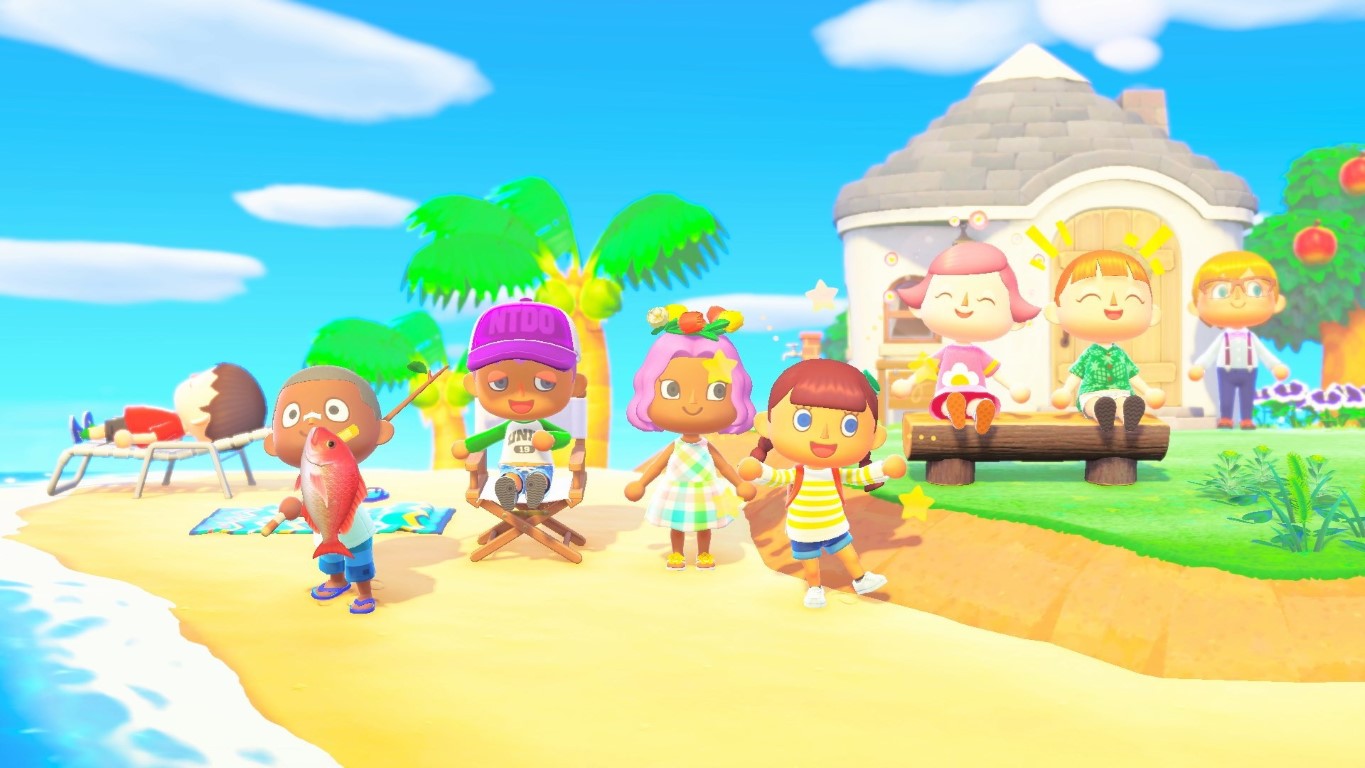
A review of ‘Animal Crossing: New Horizons’
By Tyran Batten, Contributor
4.5/5
The world is very far from the norm right now. I can’t go see a movie in a theatre, I shouldn’t visit my friends, and my family’s Easter dinner is effectively cancelled—unless Jesus himself comes back to rid us of this virus so we might properly celebrate his holiday. Normalcy is gone for the time being, and this means we need to find ways to keep ourselves sane during this period of insanity. That’s why I am so glad that I have been playing Animal Crossing: New Horizons.
Animal Crossing is a series that thrives on routine and scheduled play. It’s known for having an in-game clock that matches your actual time. If you start the game at noon, you will be presented a sunny day of butterflies. Start the game at midnight and you’ll find moths, spiders, and maybe some strange fish to catch like the football fish. Not only does the game match your hourly clock, but it will also match your hemisphere’s seasons. Right now, it’s spring—so the flowers are blooming, the trees are turning pink, and the days are mostly sunny with occasional showers.
The freedom that Animal Crossing offers is refreshingly meditative and therapeutic. When the world is asking you to stay locked in your home, it is comforting to play a game that asks you to go outside, catch some bugs, fish, or talk to the animal villagers. That’s essentially all this game is, and I’m so glad that it is. There is no “finishing” this game. You can upgrade your home, donate to the museum, customize your town, and gain new animal friends—but the game won’t suddenly end when you reach a certain status. Instead, this game offers you a new routine. You can check in each day to see what’s changed, or you can simply stick to the “slow life” of living on an island—visiting the beach and growing new kinds of trees.
New additions to Animal Crossing: New Horizons are plentiful. This is easily the biggest upgrade the series has ever gotten, and it in no way feels too daunting or too large for the simplistic roots of the series. New Horizons starts you on a deserted island where you build a town from scratch. It introduces you to every mechanic slowly and allows you to build your town from the ground up. Previous games would drop you into an already existing town, making things a bit overwhelming. This new feature is a welcome one for fresh players—there is very little to do in the first few days, and this pace allows for easy learning.
The freedom you’re given will only grow over time as new arrivals and features are introduced to your island village. Starting with so little actually allows for much more freedom in the long run since the building of the town is up to you. The addition of crafted and customizable items to this game makes it even more personalized. You can craft and alter your furniture in your own unique way. You are also no longer limited to putting furniture inside of your home. Furniture items can be placed anywhere in the town as long as there is space for it. You are given great power over the design of your island.
If you do find yourself scratching your head over what to do, there are many little quests in place. The new NookPhone (named after Tom Nook, your raccoon landlord and island advisor) will give you tasks to earn Nook Miles that can be spent on various items like clothes and furniture. These tasks are standard things that you might already be doing. This addition gives more purpose to the game and makes it easier for new players to find something to do. Nook Miles can also be spent on a Nook Miles Ticket, which will grant you a flight to a new island full of resources. If your own home is exhausted of resources for the day, paying for one of these flights can offer more gameplay. Each of these islands is random, so every flight has a chance of rewarding you with new novel resources. It’s also how you can get the coveted peach tree in your town if you’ve been unfortunately stuck with pears as a local fruit.
Some of the few frustrations I have with Animal Crossing: New Horizons come in the multiplayer. I have absolutely loved playing this game with my wife. When we had opposite shift schedules, this game was a great way for us to stay connected and see what the other was doing while we were apart. However, sharing a town means sharing the resources of the town as well. The game doesn’t duplicate the resources for each player; instead it’s up to us to share the things we need to craft items. This has allowed for interesting cooperative play, but it’s still frustrating to be forced to figure it out for ourselves.
Playing the game cooperatively on the same screen is also disappointingly limited, as the second player has very limited access. They cannot open their inventory or use their NookPhone, instead they can only cycle through their tools to try and fish and catch bugs alongside the lead player. Thankfully, it is very easy to switch who’s playing as the leader.
The most disappointing part of sharing a village is that the second player to start the game simply won’t be able to do as much as the first person to play, especially when it comes to building up your village. Only the first player will be able to decide where buildings will go and new features like bridges and shops will be located. Sharing the same village means one player will get a shafted experience, but overall it is still an incredibly rewarding experience for both of us—especially when we cooperate on the customization of our town.
I have needed this game in my life way before this global pandemic. I can’t tell you how excited I have been for a brand-new Animal Crossing game on the Nintendo Switch, and it couldn’t have come at better time. Animal Crossing: New Horizons is the ultimate de-stressor—life is slow, routine, and comfortingly simple. If you need a little more normalcy in this increasingly abnormal world, I urge you to give this game a try. The island life of New Horizons has never been a more desirable way to live than it is right now.



